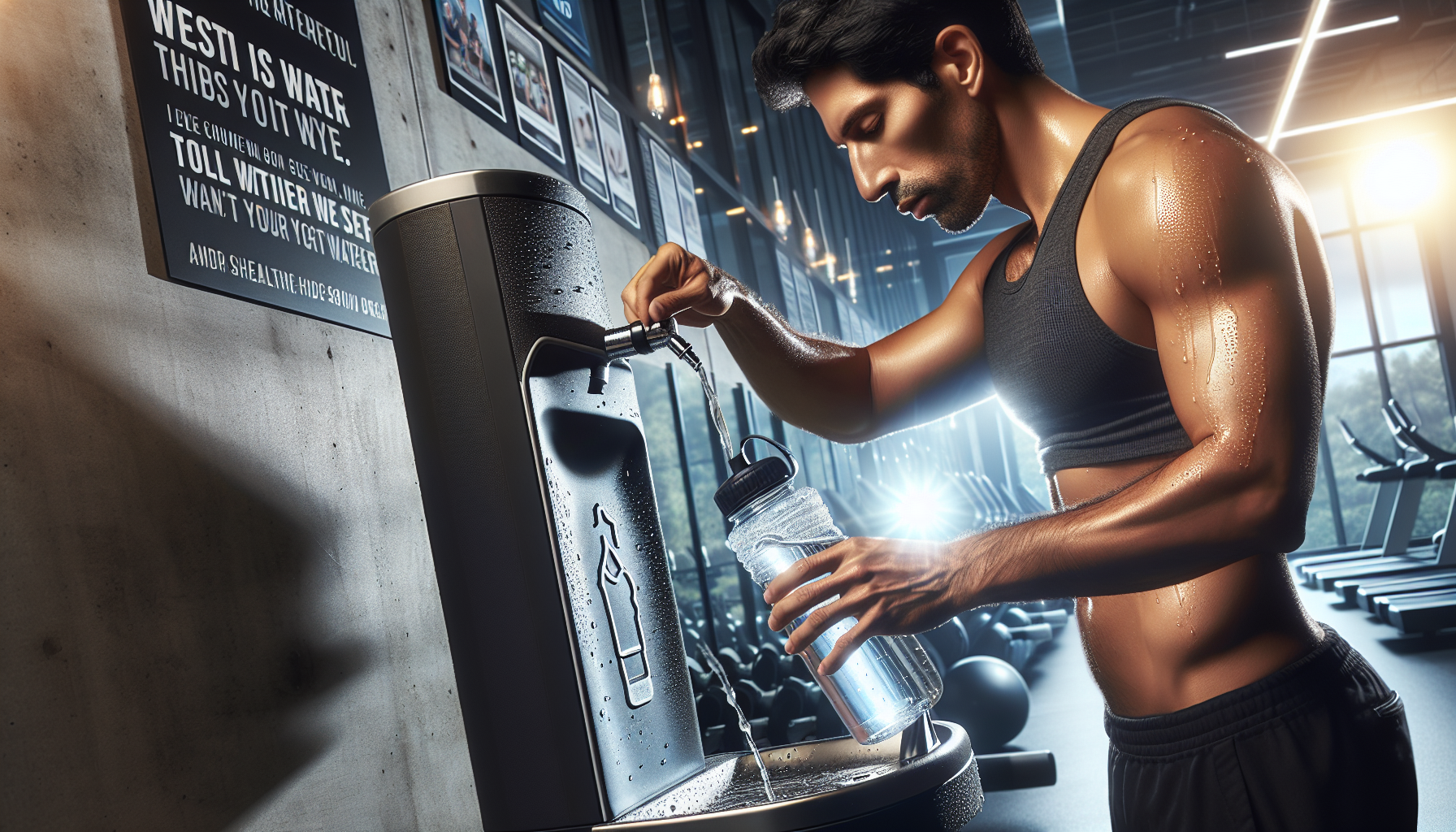Staying adequately hydrated is a cornerstone of health, playing a pivotal role in the optimal functioning of the human body. When it comes to fitness regimens, the importance of maintaining proper hydration cannot be overstated. Hydration influences everything from physical performance to recovery, and its impact is both profound and multifaceted. In this comprehensive guide, we’ll explore the critical aspects of hydration and why it is indispensable in any fitness journey.
Understanding Hydration and Fitness
Water is the most abundant substance in the human body, constituting about 60% of body weight in adults. It is involved in numerous bodily functions, including temperature regulation, joint lubrication, nutrient transport, and waste elimination. During exercise, the body’s need for water increases due to elevated metabolic rates and the loss of fluids through sweat. Failing to replenish these lost fluids can result in dehydration, which can have detrimental effects on health and exercise performance.
The Physiology of Hydration
When we exercise, our muscles generate heat, raising our body temperature. The body responds by sweating, which cools the body through evaporation. However, sweat not only cools us down but also leads to a reduction in our blood volume. If the lost fluids are not replaced, the heart has to work harder to circulate blood, which can lead to a decrease in performance, increased fatigue, and even serious health risks.
Hydration’s Role in Performance and Recovery
Proper hydration can enhance performance by maintaining blood volume and reducing heat stress, allowing for more efficient cardiovascular function and energy production. Moreover, adequate fluid intake post-exercise is vital for recovery, as it helps to flush out toxins, repair muscles, and restore electrolyte balance.
Strategies for Staying Hydrated
To ensure optimal hydration, it is essential to drink fluids regularly throughout the day, not just during and after exercise. Here are some strategies to help maintain hydration:
- Pre-Exercise Hydration: Begin your workout well-hydrated by drinking water throughout the day. Consuming a beverage with electrolytes can be particularly beneficial if you’re engaging in prolonged or high-intensity workouts.
- Hydration During Exercise: The American Council on Exercise suggests drinking 7-10 ounces of water every 10-20 minutes during exercise, depending on the intensity and duration of the workout.
- Post-Exercise Rehydration: After exercising, it’s crucial to replace any fluid lost. Drink water or a sports drink that contains electrolytes, especially if you’ve been sweating profusely.
The Impact of Dehydration on Fitness Goals
Dehydration can impede your fitness goals by reducing your ability to perform at your best. Even mild dehydration can lead to a decrease in strength, endurance, and coordination, negatively affecting your workouts. For those focusing on fitness, understanding the signs of dehydration—such as thirst, fatigue, dizziness, and dark-colored urine—is crucial to avoid its adverse effects.
Hydration and Nutrient Uptake
Water plays a critical role in the digestion and absorption of nutrients. When you’re adequately hydrated, your body is more efficient at transporting the carbohydrates, proteins, vitamins, and minerals you consume, which are essential for energy production and muscle repair. This is particularly important when considering pre and post workout nutrition, which is essential for maximizing the benefits of your fitness routine.
The Connection Between Hydration and Health
Proper hydration supports various aspects of health that are directly and indirectly related to fitness. For example, hydration is key for cardiovascular health, as it affects blood volume and pressure. It is also essential for skin health, as it helps maintain elasticity and appearance. Similarly, water intake affects digestive health and can prevent issues like constipation, which could hamper an active lifestyle.
External Resources Supporting Hydration in Fitness
Staying updated with the latest research and recommendations can help you optimize your hydration strategy. Here are some niche resources that delve deeper into the principles of proper hydration:
- The International Marathon Medical Directors Association (IMMDA) provides guidelines on fluid intake for endurance athletes. IMMDA’s Hydration Guidelines for Runners
- The National Athletic Trainers’ Association offers a position statement on fluid replacement for athletes, which can be found at NATA’s Fluid Replacement for Athletes.
- For those interested in the science of hydration and exercise performance, the Gatorade Sports Science Institute offers a comprehensive review, available at GSSI’s Hydration Science.
- Precision Nutrition provides an in-depth look at hydration strategies for athletes, which can be accessed at Precision Nutrition’s Hydration Strategies.
Practical Tips for Maintaining Hydration
Here are some practical tips to help you stay on top of your hydration game:
- Know Your Needs: Individual hydration needs can vary based on factors like weight, climate, exercise intensity, and sweat rate. Listen to your body and adjust your fluid intake accordingly.
- Use a Reusable Water Bottle: Keeping a water bottle with you throughout the day can encourage more frequent sips and make it easier to track your intake.
- Eat Hydrating Foods: Consuming fruits and vegetables with high water content, such as cucumbers, watermelons, and oranges, can contribute to your overall fluid intake.
Conclusion
Hydration is a key component of any successful fitness regimen. By understanding the role of hydration in exercise performance and recovery, and by implementing effective strategies to maintain fluid balance, you can enhance your workouts, support your health, and achieve your fitness goals. Remember that the journey to optimal hydration is personal and dynamic, requiring ongoing attention and adjustment. Stay informed, stay hydrated, and let water be an integral part of your active lifestyle.



